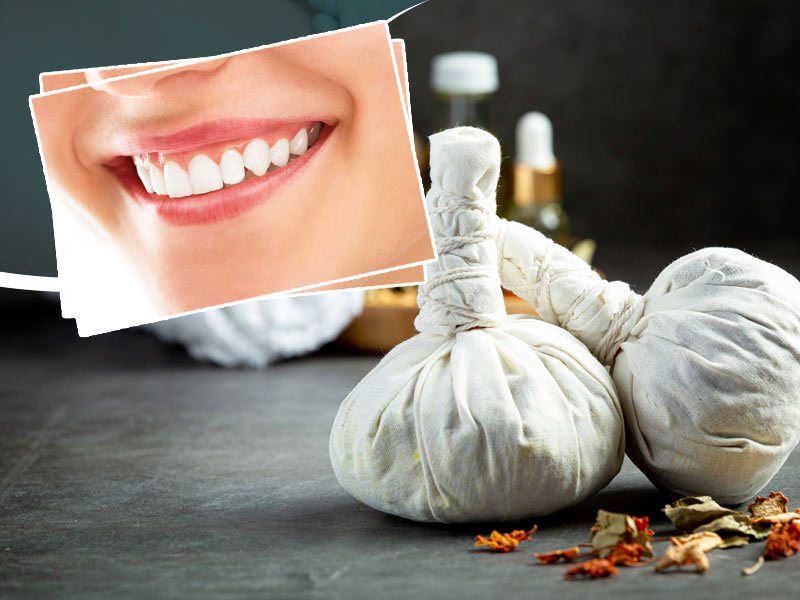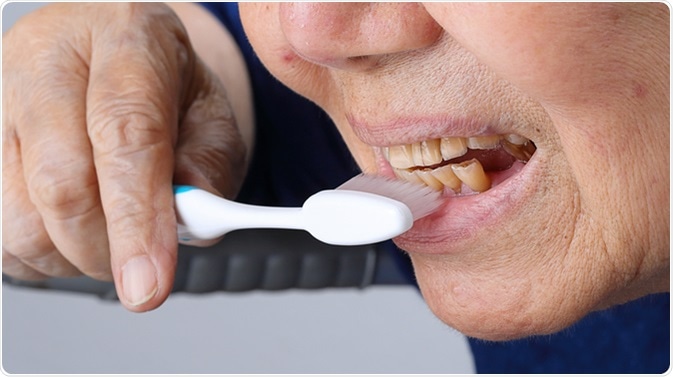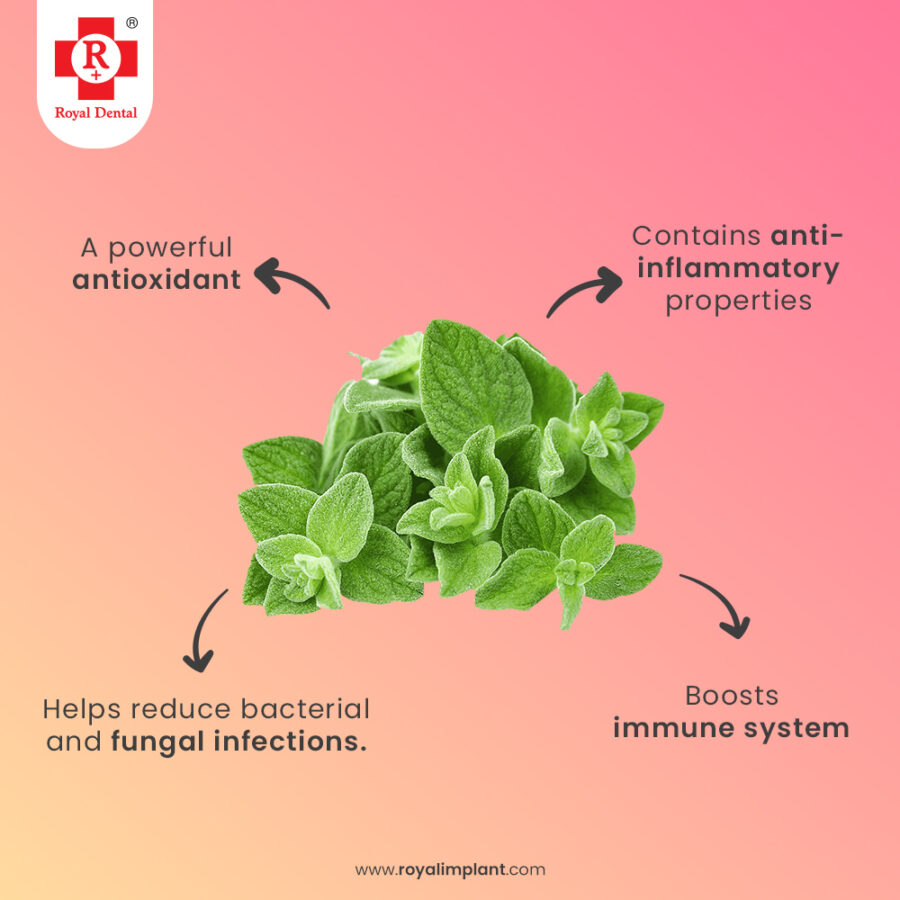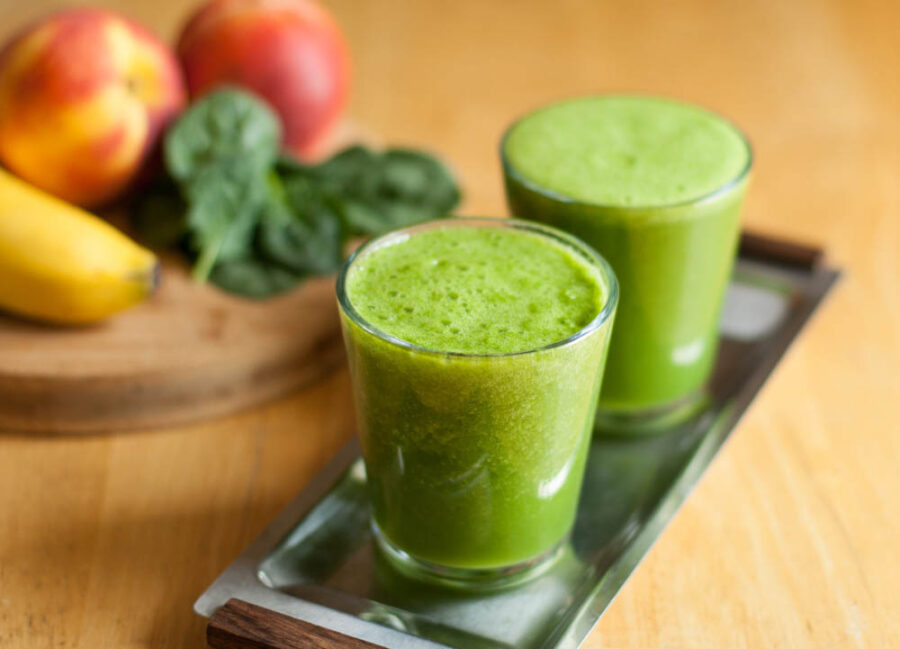You have entered the world of oral health, where traditional knowledge and cutting-edge dental science combine. As a dentist at Royal Dental Clinics, it gives me great pleasure to share with you the results of an intriguing investigation on Ayurvedic methods for warding against oral infections. Envision a future where visiting the dentist is an extraordinary experience on the path to inner peace and health. Ayurveda is an ancient Indian medical tradition that emphasizes the need of maintaining a balance between the body, the mind, and the spirit. Let’s go beyond the limits of modern dental care and discover the riches of Ayurvedic knowledge together. Get ready for a life-changing encounter as we weave together antiquity and modernity, kindling a flame of ancient wisdom in the service of your dental well-being.
Ayurveda’s approach to Oral Infections and Health
The ancient Indian system of medicine Ayurveda recognizes the deep relationship between dental health and total wellness. According to Ayurvedic principles, oral health is not just about maintaining a beautiful smile; it is about achieving a state of balance and harmony within the body.
In Ayurveda, the mouth is considered the gateway to the body, where vital energy and nutrients enter. It is believed that imbalances in the body’s three doshas, Vata, Pitta, and Kapha, can manifest as oral health issues. Each dosha represents different qualities and functions within the body, and an imbalance in any of them can contribute to oral infections and diseases.

To achieve optimal oral health, Ayurveda emphasizes balancing these doshas. This involves identifying the individual’s unique constitution or doshic makeup and addressing any imbalances through lifestyle adjustments, dietary changes, herbal remedies, and specific oral care practices.
Ayurvedic oral care focuses not only on treating symptoms but also on preventing oral infections from occurring in the first place. It recognizes that maintaining a healthy oral environment is essential for overall wellness. By adopting Ayurvedic practices, individuals can create an environment in which harmful bacteria are kept in check, the gums are strengthened, and the teeth remain healthy and vibrant.
In the next sections, we will explore specific Ayurvedic practices and remedies that can be incorporated into your daily oral hygiene routine to prevent oral infections and promote optimal oral health.
Daily Routine | Avoid Oral Infections
Oil Pulling: Ayurvedic morning oil drawing. To reach all areas, swish a teaspoon of organic sesame or coconut oil for 10-15 minutes. Swishing eliminates toxins, harmful microorganisms, and plaque. Rinse the oil out. Oil pulling cleans teeth, strengthens gums, and eliminates plaque.
Gentle Tongue Cleaning: Using a tongue scraper or the back of a spoon, gently scrape your tongue from back to front. This helps remove bacteria, toxins, and debris that can accumulate on the tongue’s surface. Ayurveda considers the tongue to be a reflection of the digestive system, and by keeping it clean, you promote better digestion and prevent oral health issues.
Brushing with Herbal Toothpaste: Neem, licorice, and Triphala make wonderful herbal toothpaste. Antibacterial and anti-inflammatory herbs battle gum disease, cavities, and oral hygiene. Circularly brush all teeth and gums. Soft-bristled toothbrushes protect gums.


Let’s explore some key practices that you can incorporate into your daily routine:
Mouthwash with Herbal Rinse: Use a herbal or homemade mouthwash after brushing. Boiling water with cloves, neem leaves, or cinnamon sticks and letting it cool makes a mouthwash. Antimicrobial herbal rinses decrease oral bacteria and refresh breath naturally.
Flossing: Flossing removes food and plaque from teeth and gums. Ayurveda suggests wax-free silk or cotton dental floss. To remove plaque and debris, gently slide the floss between your teeth in a C-shape.
Gum Massage: Herbal oil massages increase blood circulation, gum strength, and dental health. Circularly massage your gums with clean fingertips or a gentle toothbrush. Herbal tooth powders and gum-healthy toothpaste are also available.
Herbal Remedies for Dental Health | Oral Infections
Ayurveda offers a wide range of herbal remedies that can effectively promote dental health and prevent oral infections. These natural ingredients have been used for centuries and are known for their antimicrobial, anti-inflammatory, and healing properties.
Let’s explore some of the key herbal remedies recommended in Ayurveda for maintaining optimal oral health:
Neem (Azadirachta indica): Ayurvedic medicine values the “wonder tree” neem for its antibacterial, antifungal, and antiviral capabilities. Due of its cleansing and gum-strengthening properties, neem twigs have been employed as toothbrushes. Neem-extracted toothpaste and mouthwashes are commonly available. Neem-based products fight gum disease, plaque, and cavities.
Triphala: Triphala contains Amalaki, Bibhitaki, and Haritaki. Antioxidant and anti-inflammatory. Ayurvedic Triphala reduces inflammation, strengthens gums, and prevents oral infections. Mix Triphala powder with water for toothpaste or gum massage.

Clove (Syzygium aromaticum): Clove’s analgesic and antibacterial characteristics have been used for generations to treat toothaches and mouth infections. Apply clove oil or powder directly to the afflicted region to relieve dental pain and inflammation. Clove oil in warm water makes a pleasant mouth rinse.
Licorice (Glycyrrhiza glabra): Antimicrobial and anti-inflammatory licorice root helps improve dental health. It reduces plaque, gum irritation, and oral infections. Herbal toothpaste and DIY mouthwashes use licorice root extract or powder.
Turmeric (Curcuma longa): Antimicrobial and anti-inflammatory turmeric. It helps prevent plaque, gum irritation, and oral health. Turmeric powder mixed with water or coconut oil may be applied on gums. Turmeric may discolor teeth if overused.
Babool (Acacia arabica): Ayurveda uses Indian gum tree (babool) for its antibacterial and astringent qualities. Toothpaste and mouthwash include babool bark. It fights bacteria and strengthens gums.
Diet & Nutrition for Oral Health | Get rid of Infections
Ayurveda emphasizes the significance of diet and nutrition in maintaining optimal oral health. The food we consume plays a crucial role in nourishing our teeth and gums, as well as preventing oral infections and diseases. Let’s explore some dietary guidelines and nutritional tips from Ayurveda to support your oral health:
Eat a Balanced Diet: Ayurveda recommends a varied, unrefined diet. Eat fresh produce, whole grains, lean proteins, and healthy fats. A balanced diet supplies nutrition for teeth and gums.
Vitamin C-Rich Foods: Vitamin C-rich foods including citrus, berries, kiwi, and leafy greens improve dental health. Vitamin C strengthens gum blood vessels and connective tissues, preventing gum disease.
Calcium-Rich Foods: Calcium strengthens bones and teeth. Eat calcium-rich dairy, leafy greens, almonds, and sesame seeds. These foods protect your teeth.
Crunchy Fruits and Vegetables: Apples, carrots, celery, and cucumbers make great toothbrushes. Their hard texture cleans teeth by increasing saliva production.


Avoid Excessive Sugary and Acidic Foods: Sugar and acids cause tooth damage and erosion. Limit sodas, fruit juices, and acidic drinks. Rinse your mouth after eating sweet or acidic meals to reduce tooth exposure.
Hydration: Maintain saliva production by drinking water throughout the day. Saliva cleans teeth, neutralizes acids, and prevents cavities. Hydration also maintains oral moisture and general wellness.
Herbal Teas: Drink herbal teas including green, chamomile, and licorice root. These teas relieve oral irritation with natural antibacterial qualities.
Avoid Smoking and Tobacco Products: Smoking causes gum disease, tooth discolouration, and oral cancer. Maintaining dental health requires quitting smoking or avoiding tobacco products.
Stress Management and Oral Health
Stress management plays a significant role in maintaining good dental health. Chronic stress can lead to various oral health issues such as teeth grinding, jaw clenching, gum disease, and canker sores. When we are stressed, our bodies produce higher levels of cortisol, a hormone that can weaken the immune system and impair the body’s ability to fight off infections, including oral infections. Therefore, it is essential to prioritize stress management techniques such as meditation, deep breathing exercises, regular physical activity, and finding healthy outlets for stress. By managing stress effectively, we can promote a healthier oral environment and reduce the risk of oral health problems associated with chronic stress.
Ayurvedic Dental Treatments
Ayurveda offers a range of holistic dental treatments that aim to address oral health issues and promote overall well-being. These treatments focus on balancing the doshas, strengthening the gums, and supporting optimal oral health. Here are a few Ayurvedic dental treatments commonly used:
Herbal Oil Massage (Gandusha): Gandusha includes mouthing herbal oils or decoctions for a certain time. This therapy detoxifies, nourishes, strengthens gums, and prevents dental disorders. Gandusha often uses sesame oil or Triphala.
Herbal Gum Packs (Dantadhavana): Dantadhavana uses herbal gum packs or pastes. These packets include neem, licorice, and babool. Antimicrobial and anti-inflammatory qualities soothe gums and enhance gum health.
Herbal Mouth Rinse (Kavala/Gandusha): Kavala or Gandusha includes mouth washing with herbal oils or decoctions. This reduces bacteria, toxins, and oral hygiene. Kavala therapy includes oil pulling.
Herbal Tooth Powders and Pastes: Neem, clove, cinnamon, and Triphala are used in Ayurvedic teeth powders and pastes. These products clean, fortify, and prevent oral infections. They may replace or complement toothpaste.
Ayurvedic Diet and Lifestyle Recommendations: Diet and lifestyle advice accompany ayurvedic dental treatments. These may include a balanced diet, using certain herbs and spices, and good mouth hygiene. Ayurveda stresses a comprehensive approach to dental health that considers both treatment and general well-being.
Conclusion
You may do wonders for your oral and general health by adopting some simple Ayurvedic dental care techniques. A comprehensive approach to preventing oral infections and maintaining good oral health is possible by embracing ancient knowledge and merging it with contemporary dentistry. Don’t forget to talk to your dentist like myself, Dr. Chirag Chamria of Royal Dental Clinics, about creating a unique treatment plan that takes use of both Ayurveda and contemporary dental techniques. Allow the knowledge of Ayurveda to guide us on our path to better oral health.
© All rights reserved by Royal Dental Implants Pvt Ltd
Issued in public interest





